This topic is one of those things that ‘we racers’ always tend to be a little impatient in getting done. The old saying has always gone when someone asks you how you are going to go quicker the automatic response is ‘brake later and open the throttle earlier’. If only it were that simple.
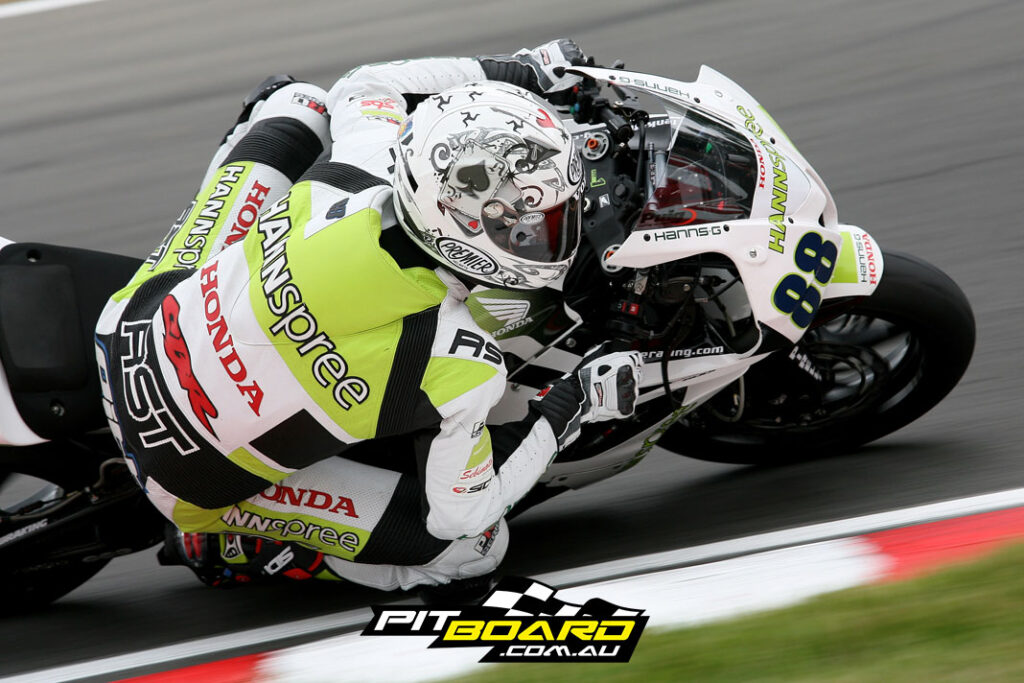
Before really getting into throttle opening, there was always one part of the setup that I needed very smooth before I could really focus on throttle opening and that is the initial pick-up of the throttle or the transition from closed throttle to that first crack. This is just to get the bike settled and pick-up the drivetrain and feel the connection with the rear tyre.
Check out our other rider training articles here…
On a new bike or even when a new map was installed and particularly since the heavy reliance on traction control has come to the fore, that initial pickup became the priority that everything else was built on.
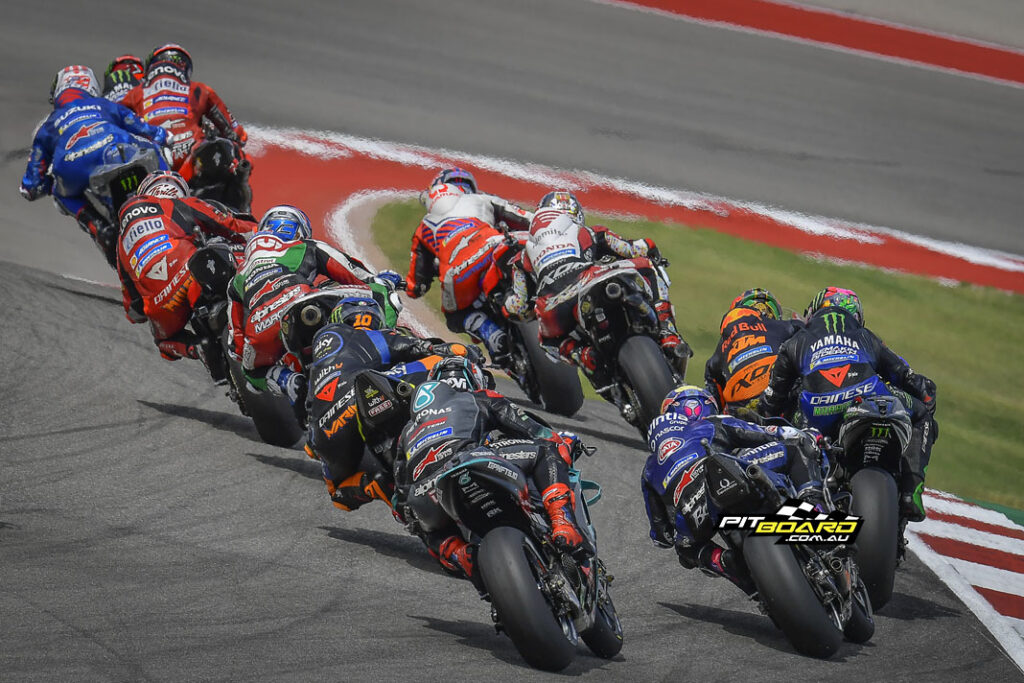
The first day of testing a new bike, and sometimes just the arrival at a new circuit, could mean plenty of time spent on smoothing out the aggressiveness of that initial crack of the throttle. When it is too aggressive the bike tends to jump, which unloads the front suspension then reloads it when you try and get it back under control. The compromise is definitely two-way with the need for feel from the direct connection to the rear tyre but also not too soft on opening so that you can’t really feel the grip level of the rear tyre.
Once the desired pickup is achieved and the rider has the confidence to then really open the throttle it becomes a matter of laps and each particular corner in working out the quickest way to exit the particular turn in question.
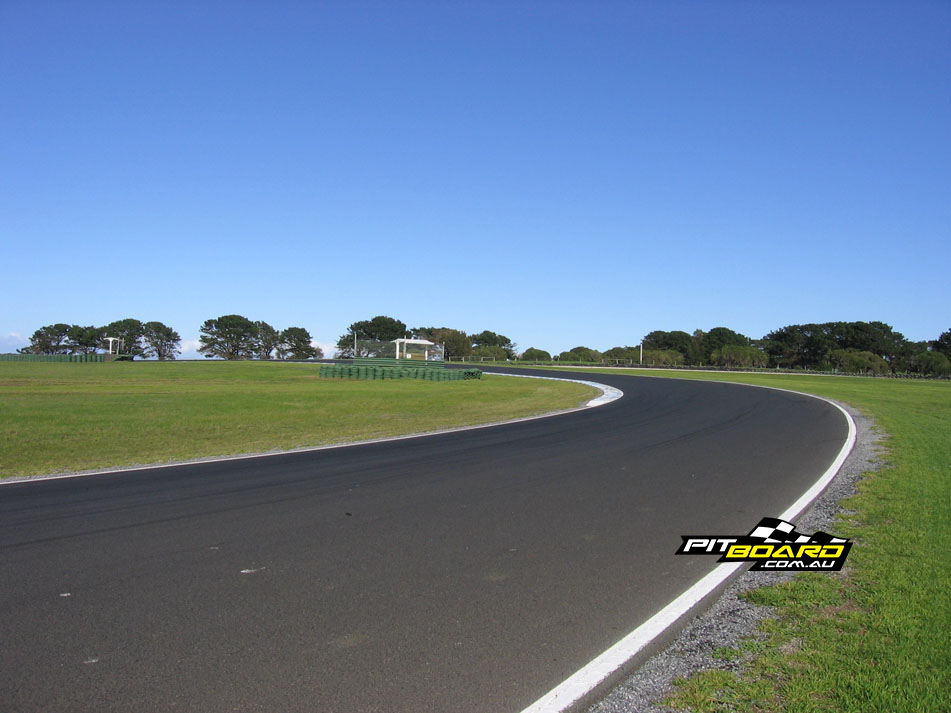
In a long constant-radius-type turn like the Southern Loop (Turn 2) at Phillip Island, it requires getting back on the throttle quite soon after releasing the brakes and hitting that first apex on the entry. It is more to keep a constant speed around the corner and get the bike loaded and set up for the exit. When you have it turned and pointed down towards turn three, you then start to pick it up more to the centre part of the tyre or off the edge of the tyre and really get the throttle open.
The opposite type of corner is Honda Corner (Turn 4) which is much slower and more of a stop corner that involves much lower corner speed but then a sudden need to get the bike up and accelerating back to speed again down towards Siberia. It is pointless trying to carry a lot of corner speed around a corner like Honda Corner. Getting on the throttle too early you run out wider on the exit and therefore never really get the bike off the side of the tyre and sometime never really to full throttle.
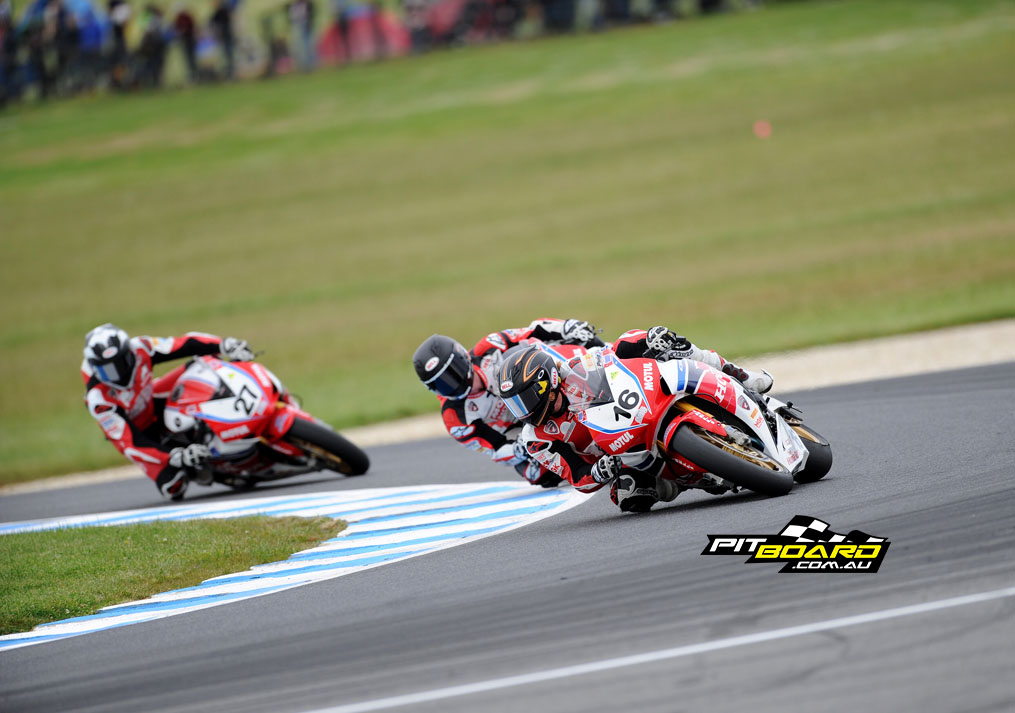
I always found it better to sacrifice a little mid-turn speed around Honda and get the bike turned and over the little bump in the middle of the corner so that I could pick it up and get the throttle opened to full as soon as possible in order to use the power the bike has on the fat part of the tyre.
I touched earlier on traction control and its effect on throttle opening. Put more correctly and simply would be to say traction control lets you open the throttle earlier. When a rider feels that the task of getting the tyre hooked up on the first part of the opening is being taken care of electronically you tend you get more and more confident with throttle opening but it does depend on traction still and if the traction is simply not there then the bike just won’t go anywhere. Keep in mind though that it is still very much possible to highside a bike with traction control.
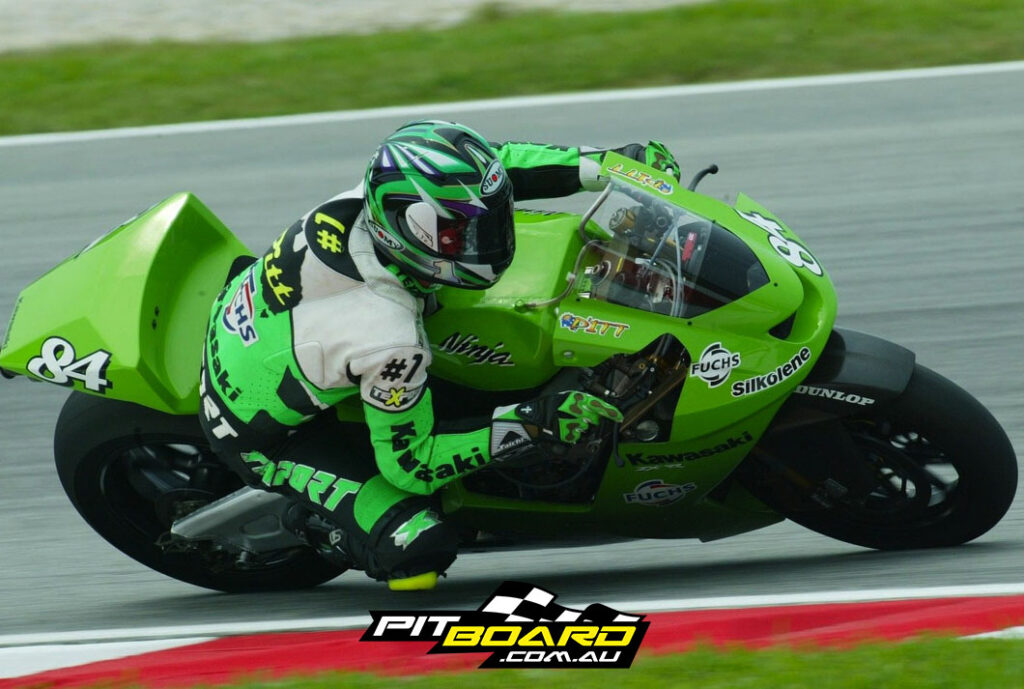
The point where you can open the throttle can also vary a lot from the first day of practice when the circuit is dirty to race day when the track is a lot faster. Usually on day one, tyres are not working really well on the dirty track and as the rubber gets laid down things will improve.
A wet track and wet tyres can change things quite a lot too, compared to your reference points in the dry. In the wet, I generally found that I picked the throttle up quite early just to keep the bike loaded around the turn and balanced because any sudden movement can leave you sliding up the road on your arse or head. I’m only talking maybe five per cent throttle opening but just enough to keep the tyres loaded. Of course, once you start opening it on the exit you really need to be smooth and consistent all the way to full throttle. I found the mental concentration was really intense in the rain but staying on top of it really allowed you to reap the rewards.
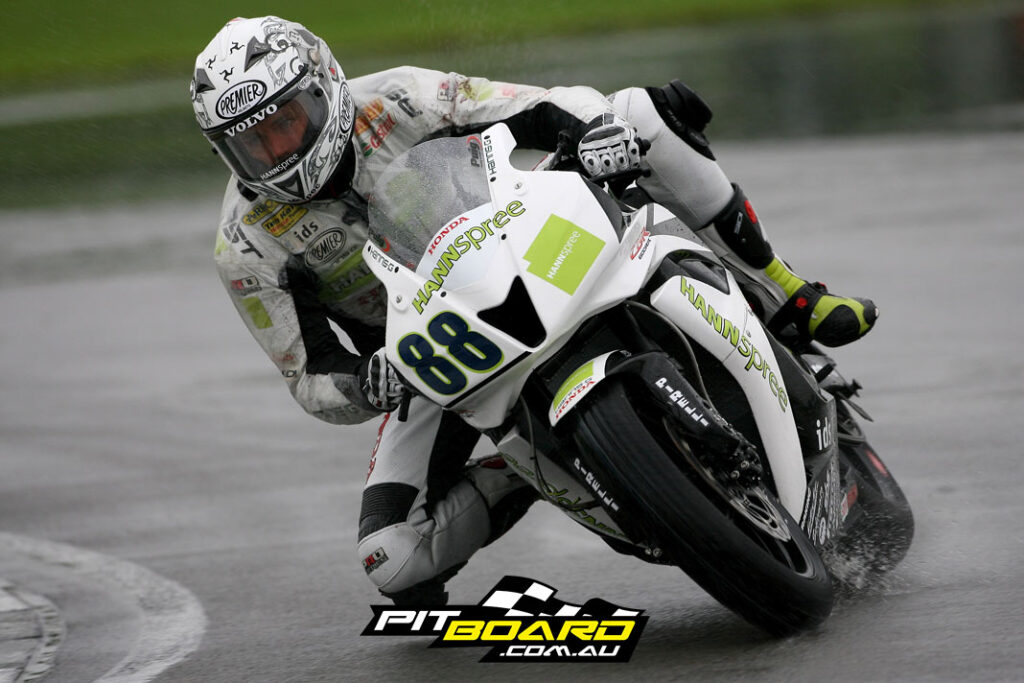
Once wheelie control started to be introduced, that also made throttle opening quite a bit easier whereas before you had to control it with the rear brake or try and short shift a little and keep it out of the power a bit. The wheelie control allowed you to just open the throttle to the stop and get on with it but again the delicate balancing act was in not taking too much power out of it so you lost out on acceleration.
Another interesting experience I want to share with you is the ‘against all logic’ of opening the throttle on qualifying tyres. You really need to forget what your brain is telling you and open the throttle so much earlier and harder on the side of the tyre for one lap.
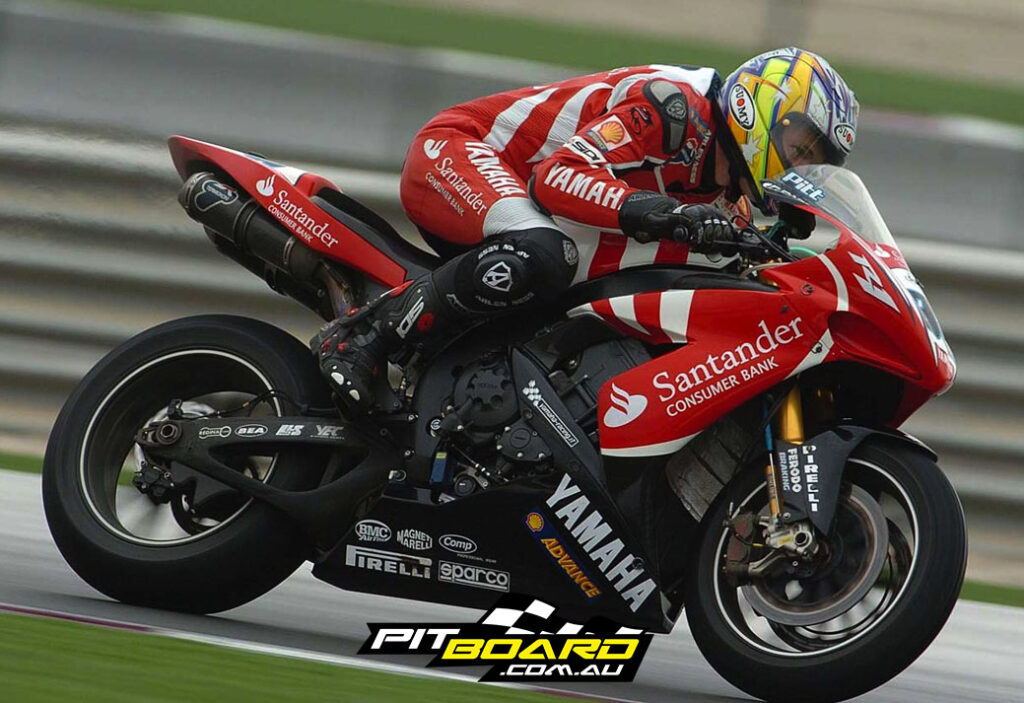
The most fun I had one day was when I was testing the factory Yamaha M1 800 for Michelin in Spain when we were trying to get the tyres on the pace of the Bridgestones. We spent a whole morning testing rear qualifiers and then front and rear qualifiers together. With the fronts I could simply brake hard all the way to the apex and then crack the throttle almost as soon as I got off the brakes and get it onto the super-sticky rear qualifier that didn’t move.
The trap there was that straight after lunch I was back out on race tyres and sure enough I took the bait and fell straight into the trap of losing the front on the brakes entering a fast right-hander. Lesson learned I suppose. In summary, the biggest piece of advice I could give on throttle opening is to go by the conditions of the track and the type of corner you are going through because no two corners are the same and therefore openings will vary. Of course you need keep in mind that old saying of ‘Sometimes you need to slow down a little to go faster.’


